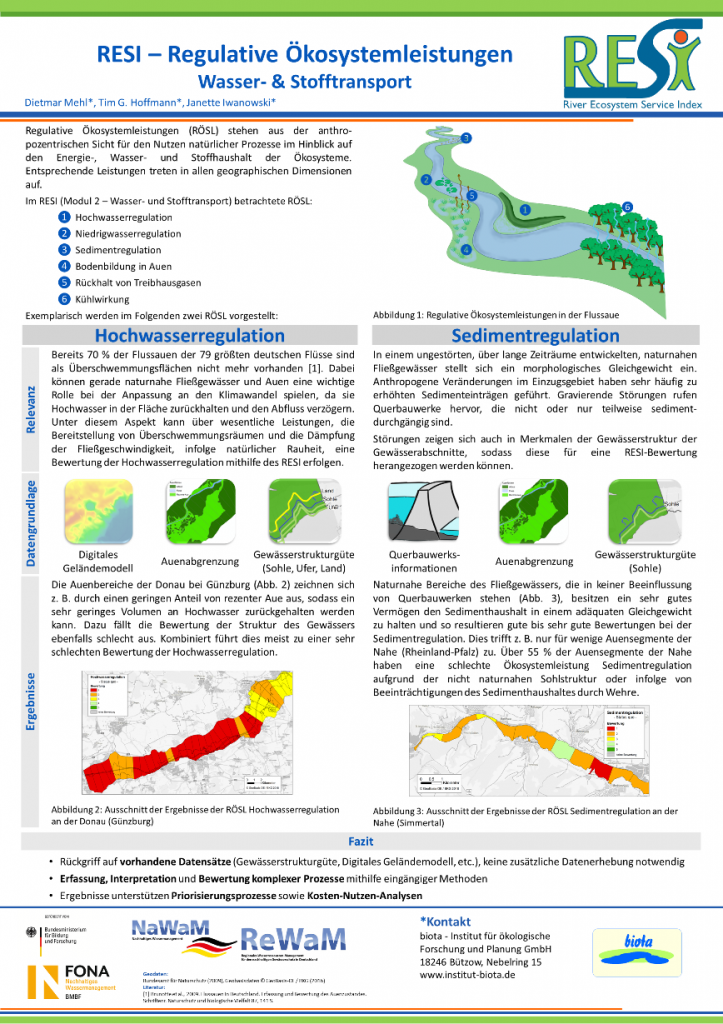2. Mitigation of Flows
The potential of floodplains to retain floodwaters clearly represents one of the important nature services provided for free to the urban settlements located in flood–prone areas. In order to perform this protective function, floodplains need to store flood water as much and as long as possible, to lower and to delay flow peaks. The importance of such flood protection provided by floodplains was widely perceived by the public during the flooding events which have occurred in recent years in Germany. These events demonstrated the vulnerability of the large societal values that have been developed in floodplains, and hence this ecosystem service is now widely appreciated by the public.
As in Germany about two thirds of active floodplain areas have disappeared, this protective function has been reduced accordingly. As a consequence, the strategic approach of technical flood protection focussing on the further training of rivers, construction of dykes and technical flood retention basins, accompanied by an intensive use of the former floodplain areas, has contributed to the loss of natural retention areas and has been often questioned. This approach was thus hold accountable for the large economic losses resulting from breached dykes and flooding of historical city centres which are difficult to defend. The RESI-module 2 quantifies the respective hydrological regulative functions, also including the regulation of sediment transport.


